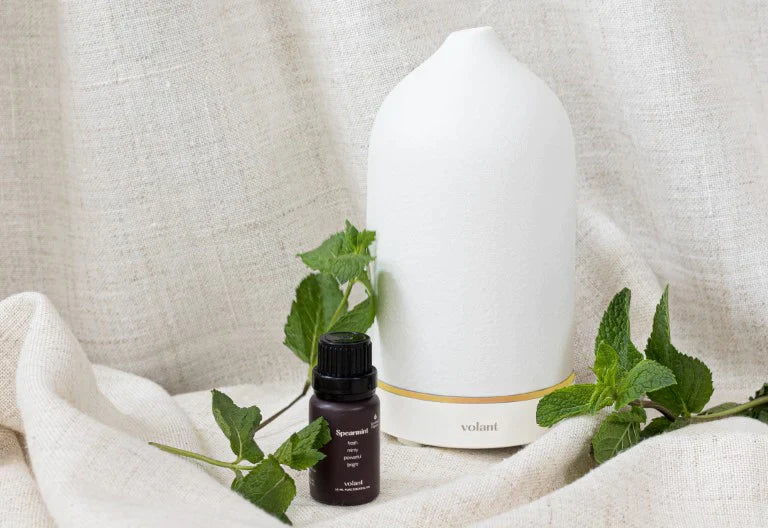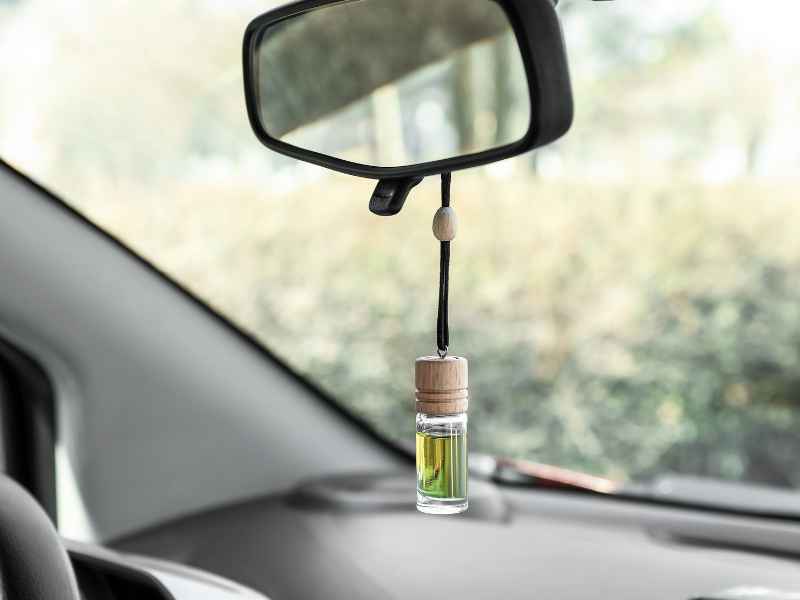But are oil diffusers safe for your lungs? It all depends on how you use them, so let us help break it down for you!
Using Essential Oils in Your Oil Diffuser

When wondering if oil diffusers are safe for your lungs, it’s important to understand how diffusing essential oils actually works.
An ultrasonic oil diffuser has a small ceramic plate on the inside that creates a cool, odourless water mist when vibrating - similar to the mist around a waterfall! When you add essential oils to your diffuser, the vibration breaks down the essential oil into tiny particles, and the diffuser spreads this fine vapour of essential oil and water into the air. This is what creates the refreshing scent in your home!
What are essential oils?

Essential oils are different from synthetic perfumes and fragrances because they are completely natural. Essential oils are highly concentrated liquids extracted from plants or resins. They are very potent, so a little goes a long way. But how do you use them safely? Here are a few key safety points to remember:
- As a general rule, ingesting essential oils is not safe.
- Using essential oils topically on your skin may be fine, but the essential oil has to be diluted with a carrier oil first.
- Diffusing essential oils is a great way to enjoy the benefits of aromatherapy, and it is safe for most people.
Because a diffuser spreads the fine particles of the essential oil into the air, it is a great way to safely enjoy the benefits of essential oils.
Are Oil Diffusers Good for Your Lungs?

Essential oils have been used for centuries in traditional practices like Ayurveda or Chinese medicine. Traditionally, essential oils, herbs and plants have been used in steam inhalation, saunas, warm baths and massages. People have been aware of the benefits of aromatherapy for thousands of years. But it’s not until recently that there have been scientific studies on the effectiveness and benefits of aromatherapy.
Although this is quite a new field of study, there are a few studies that investigate the benefits of diffusing essential oils for the respiratory system.
Here are some of the most popular oils that have been studied for their health benefits!
Eucalyptus

Eucalyptus is a calming aroma that has an airy and fresh scent. Eucalyptus blends well with citrusy scents like grapefruit or lemongrass for an uplifting and energising blend. It also works great on its own and it’s often used in spas to create a calming atmosphere.
Eucalyptus essential oil is a common treatment for symptoms of the common cold such as coughing or a stuffy nose. Studies show that Eucalyptus may be a safe and effective way to treat certain respiratory symptoms.
Try diffusing Eucalyptus essential oil to reduce the symptoms of a winter cold!
Frankincense

Frankincense has been used for centuries in religious and spiritual ceremonies. Used to create a sense of peace and relaxation, frankincense has a warm and spicy aroma that can be described as clean or fresh.
Traditionally (before there were diffusers), frankincense was used in steam inhalation, baths and massages to treat respiratory issues. The boswellic acids found in frankincense have been shown to reduce and prevent inflammation in chronic inflammatory diseases like asthma, with no reported severe side effects.
Try diffusing this oil blend for a refreshing aroma to support clear breathing!
3 drops Frankincense
2 drops Eucalyptus
1 drop Rosemary
1 drop Spruce





